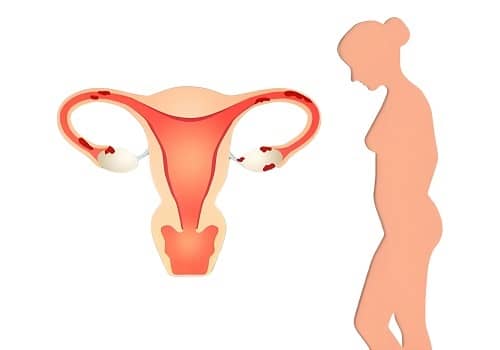Recurrent miscarriage refers to the occurrence of two or more consecutive miscarriages. Understanding its causes is crucial for developing effective treatment plans. Here are the six most common causes of recurrent miscarriage:

Table of Contents
- 1. Anatomical Factors
- 2. Endocrine Factors
- 3. Immune Factors
- 4. Genetic Factors
- 5. Infection Factors
- 6. Lifestyle and Environmental Factors
1. Anatomical Factors
Uterine abnormalities are one of the main anatomical causes of recurrent miscarriage. Conditions such as a thin endometrium, intrauterine adhesions, septate uterus, or bicornuate uterus can affect embryo implantation and development. Additionally, uterine fibroids and adenomyosis can also increase the risk of miscarriage. These issues are typically diagnosed through imaging techniques like ultrasound or hysteroscopy.
2. Endocrine Factors
Endocrine imbalances are significant contributors to recurrent miscarriage. Luteal phase deficiency can lead to insufficient progesterone production, which is necessary for maintaining a pregnancy. Furthermore, thyroid disorders (such as hyperthyroidism or hypothyroidism) and polycystic ovary syndrome (PCOS) can interfere with normal pregnancy progression, raising the risk of miscarriage.
3. Immune Factors
Immune factors contribute to recurrent miscarriage, particularly in individuals with previous pregnancies, including miscarriage or abortion. During these events, damage to the placental barrier and trauma to the uterine lining may cause fetal tissue fragments to enter the maternal bloodstream, triggering antibodies against the embryo. These antibodies can destroy the immune barrier, leading to further miscarriages.
4. Genetic Factors
Chromosomal abnormalities in the embryo are a common cause of early miscarriages. Around 2-5% of couples experiencing recurrent miscarriage have structural chromosomal abnormalities, which can lead to failed pregnancies.
5. Infection Factors
Certain infectious agents, such as Toxoplasma, Cytomegalovirus (CMV), and Rubella virus, may infect the embryo through the placenta, impairing its normal development. These infections are typically screened for before conception or in early pregnancy through blood tests.
6. Lifestyle and Environmental Factors
Unhealthy lifestyle habits can also increase the risk of recurrent miscarriage. Smoking, alcohol consumption, and exposure to harmful chemicals, such as heavy metals or pesticides, can negatively affect the placenta and fetal development. Additionally, high stress levels and chronic sleep deprivation can disrupt hormonal balance and affect pregnancy outcomes.
In conclusion, it is essential to undergo comprehensive testing and evaluation to identify the specific cause of recurrent miscarriage. Once the cause is understood, doctors can develop a personalized treatment plan to help women successfully carry a healthy pregnancy to term.